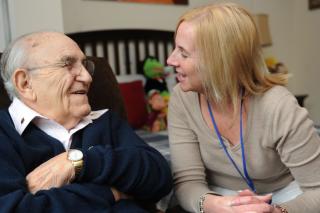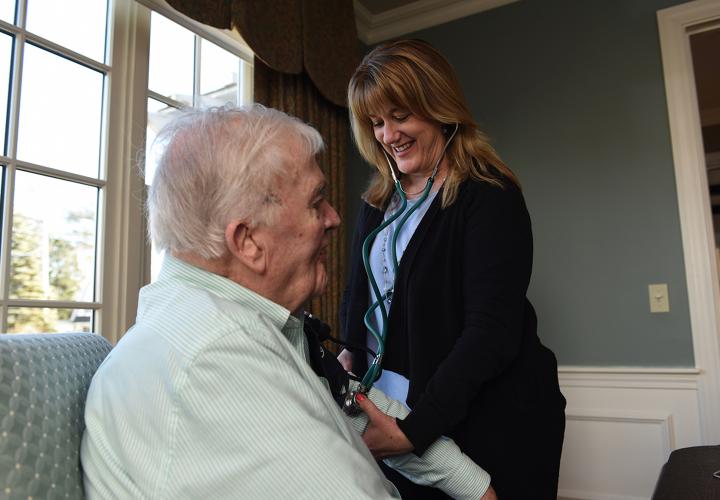What Is Palliative Care?
Just like cardiology or oncology, palliative care is a medical specialty. While other members of your health care team focus on treating your underlying illness, palliative care providers focus only on treating the symptoms that may be standing in the way of you living your best life.
Anyone can make a referral to our palliative care program — a patient, a family member, a physician, or a nurse.
Palliative care can help by:
- Taking a holistic view of your illness and working to reduce pain as well as emotional distress
- Helping you consider your goals for illness management based on what matters most to you
- Working with your doctor in developing a plan of care consistent with those goals
The Benefits of Palliative Care at Home
The goal of palliative care is to improve the quality of life for the patient and for those who support them, whether they are family members, caregivers, or close friends. Its pillars are:
- The convenience of receiving care in your own home — we come to you
- Expert symptom management to reduce both physical and emotional distress
- Consultation support for primary care providers and specialists in caring for their most complex patients
- Skilled communication and intensive patient/family/clinician decision-making discussions
- Clear patient and caregiver education on what to expect in order to empower patients to handle symptoms at home, enable optimal shared decision-making, and reduce anxiety
- Coordinated care and efficient transitions across settings, if needed, so that treatments match your needs and priorities as they change over time
The Hebrew SeniorLife Difference
The care we provide at Hebrew SeniorLife is guided by each patient’s personal preferences and care goals. We support your physical and emotional needs while also supporting your caregivers and family.
- Nursing Care brings a nurse practitioner certified in palliative care to your home to evaluate and treat the symptoms creating barriers to your quality of life. The nurse practitioner can also facilitate communication among members of your broader health care team.
- Medical Social Workers can guide you and your family with education and decision making around treatment goals and options for care. They are also there to support your emotional well-being. Through personal visits in your home, we work with you to reduce discomfort and support your best quality of life, as you define it.
FAQ
Palliative care is covered under Medicare and may be covered by your private insurance plan as well.
Palliative care is right for you if you suffer from pain, stress, or other symptoms due to a serious illness. It can be provided at any stage of illness.
You can expect services designed to relieve symptoms such as pain, shortness of breath, fatigue, constipation, nausea, loss of appetite, and difficulty sleeping. Palliative care helps you carry on with your daily life. It can improve your ability to undergo medical treatments. It helps you to better understand your condition and your choices for medical care. In short, you can expect support to achieve your best possible quality of life.
The palliative care team works in partnership with your doctor and other medical professionals to provide an extra layer of support for you and your family. The team helps with symptom management, communication about your goals and treatment options, and helps you navigate the health system.
Hospice care is offered when someone is deemed to be in the last several months of life and is no longer pursuing curative treatment. Hospice care provides holistic, comfort-focused medical care for patients and their families at their preferred location. In contrast, palliative care is accessible to people with serious illness at any stage of life, regardless of their prognosis or treatment goals.




